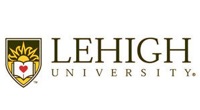Below is a summary of the abstract you submitted. Presenting author(s) is shown in bold.
If any changes need to be made, you can modify the abstract or change the authors.
You can also download a .docx version of this abstract.
If there are any problems, please email Dan at dar78@pitt.edu and he'll take care of them!
This abstract was last modified on May 20, 2025 at 5:14 p.m..

The SEA Program at Lehigh University offers an excellent platform for undergraduates at all academic levels to engage in phage research and to build competencies in scientific experimentation. Since 2009 phage hunting and bioinformatics courses have supported phage research interests of first and second year undergraduates, with an advanced phage research and SEA-GENES courses further expanding opportunities for students after participation in the foundation courses. Engaging students in the practice of science is a primary goal in each course, with the foundation courses introducing students to hypothesis testing, making predictions, designing experiments to address hypotheses, analyzing data, and formulating strategies for next experimental steps. We present here, an example from the phage hunting course, where first-year students develop hypotheses about the cluster identity of their isolated phages by comparing their phage to other phages in the following ways: 1) Close examination of phenotypic and morphological characteristics, including plaque morphology and transmission electron microscopy; 2) preliminary genome characterization via restriction endonuclease digestion patterns—specifically a side by side, HaeIII digestion; and 3) infectivity and immunity patterns using cluster-specific lysogens such as the cluster N Xeno or cluster A4 Perplexer lysogens. Specific cluster hypotheses for each phage are further refined by second year students in the bioinformatics course, by integrating data from several the following sources: 1) the cluster identity of sequenced phages; 2) identification of which phage genomes correspond to any nearly-complete or complete contigs from DOGEMS analyses, as revealed by PCR using contig-specific primers; 3) the ability, or not, of phages to produce a lysogen (all class phages are tested for this ability); and 4) phage sensitivity assays with all phage lysates spotted on lysogens to explore homo- and hetero-immunity patterns and to define common immunity patterns between phages. Our pedagogical strategy for hypothesis testing over both courses provides special opportunities for additional hands-on learning and deep-dives into host-phage interactions, immunity mechanisms, and the genetic switch between lytic and lysogenic cycles for temperate phages. Hypothesis-testing in our foundation SEA-PHAGES courses helps prepare our students for transitions to other phage courses in the curriculum where scientific thinking and readiness for independent research are hallmarks of course expectations.


